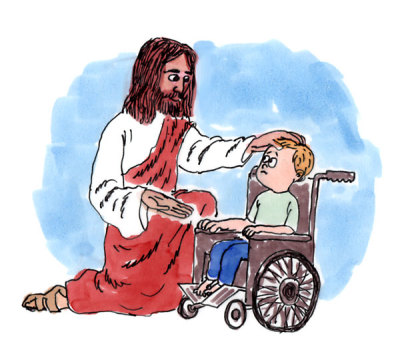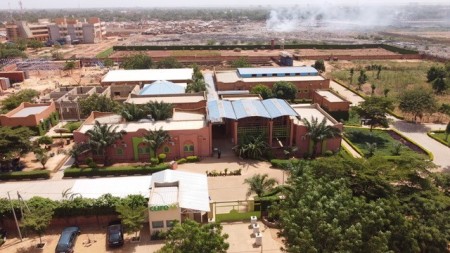International day of persons with disabilities: Who will serve Lazarus?

I recently visited a CURE Children’s hospital in the country of Niger in West Africa. Niger is among the least developed countries in the world. In addition to endemic poverty, the nation now faces ongoing threats of violence by armed groups of terrorists who traverse porous borders with impunity — on motorcycles with machine guns in tow.
CURE International operates a network of eight children’s hospitals that provide life-changing surgical care to children living with disabilities. Children who would otherwise see their treatable condition turn into a long-term disability. Our hospital in Niger is located in the capital city of Niamey. More specifically, it is in a part of town known as Lazaret. The neighborhood’s name is derived from the Biblical Lazarus who was surviving on the street, unable to work because of his disease.
During the 1970s, Lazaret, Niger, was far outside the capital's city center. It was a place where the government would send people with disabilities, diseases (including leprosy), and those who were refugees. When the Ebola crisis hit in 2014, the government set aside a facility to house these victims – in Lazaret. Even to this day, people with meningitis are regularly housed in this same location.

When CURE prepared to build a hospital in Niger, we were given a 99-year land-lease in, no surprise, Lazaret. In fact, our land is on top of a landfill in the neighborhood where the government quarantined outcasts. If you walk the grounds of the hospital at night, the stench is overpowering. The hospital was built in a literal Gehenna, or garbage pit, with children and families squatting among burning trash.
And here, in Lazaret, resides the CURE Children’s Hospital of Niger. It is here that God is redeeming the lives of children who have been outcast because of their disabilities. Quite literally, they’ve been sent outside the city to a place of the unwanted; and it is here where they find healing and the hope of Christ in a country where most people have never even heard the name of Jesus. There truly could not be a better place for this hospital. Every day, we are privileged to bring healing, hope, and compassion — that Lazarus was denied — to the suffering and the outcast of Niger.
We share this story to frame the need for today — the International Day of Persons with Disabilities. A day that brings much-needed attention to the plight of those, who of no cause of their own, were born with conditions that move them to the margins of society.
A recent report by UNICEF expressed the plight of children living with disabilities, validating with data what we have experienced first-hand. Children with disabilities are 49% more likely to have never attended school, 41% more likely to feel discriminated against, and 20% less likely to have expectations of a better life.
If you have traveled to developing nations, this is likely a scene you have witnessed firsthand. People living with disabilities walk the city streets on their hands. School-aged children living with disabilities are used as pawns for panhandling, rather than in a classroom playing with friends. Kids with untreated broken bones render their limbs unusable.
The truth is that you don’t have to build a surgical hospital, nor do you need to travel halfway around the world to serve a child living with a life-altering disability. There are children living with disabilities in your very own neighborhood, at your child’s school, and maybe even in your church.
I recently met a grandmother whose grandson is the same age as my son and who goes to school with my son. Her grandson was adopted internationally and is wheelchair-bound. She was telling me that the school aids often park this little boy during recess so that he can watch the kids play. Every day, he sits there waiting for someone to play with him. Sometimes it happens but most of the time it doesn’t. It is heartbreaking.
Our prayer for today is that the Church of Christ would find small but meaningful ways to serve children living with disabilities. Below are six practical steps that you could take today to help serve a child living with a disability:
- Consider hosting a Night to Shine event at your church with our friends from the Tim Tebow Foundation (link).
- Engage your pastor about programs and outreach activities to children with disabilities.
- Examine your church's facilities to determine if they are friendly to those who use assistive devices.
- Volunteer at your local school to help serve children that have special needs.
- Consider fostering and/or adopting children who have disabilities. Often these are the ones who are on the waiting list the longest.
- Support local and international Christian organizations that provide care to children living with disabilities. In addition to CURE International, check out Joni & Friends, Hope and Healing International, CBM International, or Kupenda.
Like Christ, we Christians should be known for our compassion. Especially for our compassion to the most vulnerable. If not us, then who? And if not now, when? We must not pass by the Lazarus in our midst.
Justin Narducci serves as the President and CEO of CURE International.




















